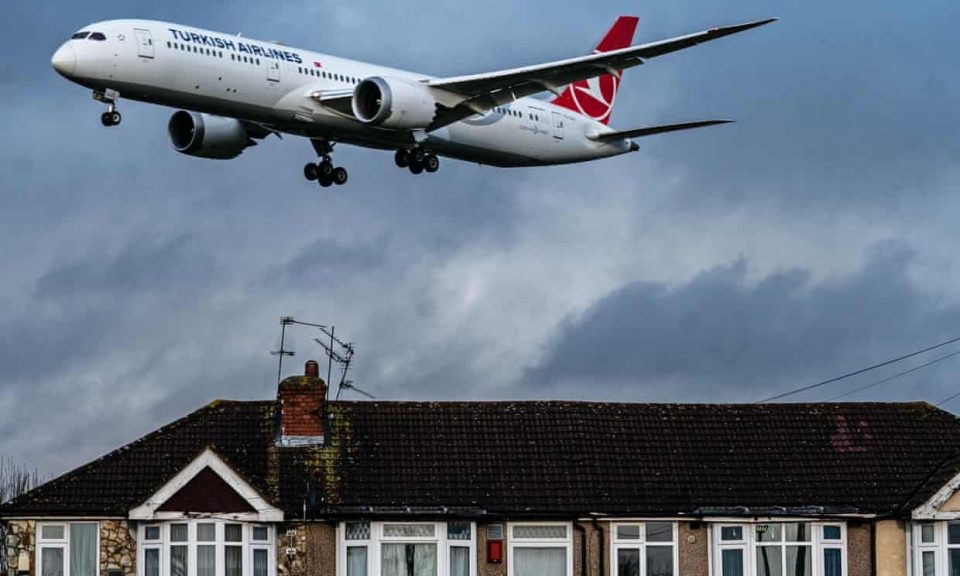The debate surrounding the addition of a third runway at Heathrow has been ongoing for many years, involving ministerial resignations and political reversals amidst the looming threat of climate change, which has seen global temperatures rise by 0.2 degrees Celsius since the initial proposal for expansion. Currently, Chancellor Rachel Reeves is advocating for a revival of this expansion as part of a strategy aimed at stimulating economic growth.
However, opponents like London Mayor Sadiq Khan argue that the expansion will have minimal impact on economic advancement, contribute to significant disruption, and contradict the UK’s environmental commitments.
Following years of speculation and persistent denials during the approval phase for Heathrow Terminal 5, BAA plc acknowledged for the first time its intention to pursue authorization for a third runway in response to the government’s airport consultation.
Local communities, London politicians, and even players within the aviation sector broadly condemn the third runway initiative, especially in light of Heathrow’s previous assertions denying any pursuit of expansion.
At that time, transport secretary Alistair Darling introduced the government’s aviation white paper, identifying Heathrow as the preferred site for the next runway in southeast England while expressing concerns regarding air pollution. The document anticipated that the third runway could become a reality within a 12-year timeframe.
Activists established the Camp for Climate Action near Sipson, bordering Heathrow, leading to confrontations with law enforcement. The government reaffirmed its cautious support for the expansion in an updated white paper the prior year.
David Cameron, then leader of a Conservative government, indicated that a third runway at Heathrow would likely be blocked, criticizing former Prime Minister Gordon Brown for “stubbornly” pushing the initiative. He insisted there would be no third runways — “no ifs, no buts.”
The EU cautioned that the UK could fall short of nitrogen oxide targets mandated by the EU if the expansion were to move forward.
Transport secretary Geoff Hoon formally authorized the construction of a third runway and sixth terminal at Heathrow but committed to implementing “the most rigorous climate change regulations for aviation globally.”
Opposition within the cabinet, notably from Environment Secretary Hilary Benn and Energy Secretary Ed Miliband, voiced significant reservations. Boris Johnson, then serving as the Conservative mayor of London, publicly criticized the decision, and Labour MPs staged a revolt in Parliament.
Under Cameron’s coalition government, a definitive stance against the third runway was taken, also rejecting additional runways at Gatwick and Stansted.
In March, reports surfaced that Cameron and Chancellor George Osborne were persuaded to reassess long-term policy regarding Heathrow following lobbying efforts by foreign leaders and business representatives. By June, the government announced it would not obstruct BAA from submitting its expansion proposals.
Nick Clegg, deputy prime minister, assured that the Liberal Democrats would oppose any Heathrow expansion. Johnson called the proposal a “disaster,” and Zac Goldsmith threatened to resign as the MP for Richmond Park, potentially triggering a by-election. Justine Greening, the transport secretary critical of Heathrow expansion, was ousted in a cabinet reshuffle.
Airport CEO John Holland-Kaye expressed regret that Heathrow had ever dismissed the prospect of a third runway, stating, “I’m amazed by that commitment. It should never have been made and could not be upheld. That doesn’t excuse it — it’s an apology.”
While campaigning in Uxbridge and South Ruislip, Johnson pledged to physically block the construction of the third runway with protesters.
The Airports Commission, led by Sir Howard Davies, a former CBI director general, released a report advocating for a new runway to the northwest of Heathrow, suggesting conditions such as a ban on night flights, legally binding limits on noise and air quality, and regulations preventing the construction of a fourth runway. Local organizations and environmental activists were disheartened by the findings.
Prime Minister Theresa May postponed the vote on airport expansion amid warnings that Conservative MPs could resign. Key opponents remained in the cabinet, including Boris Johnson, now foreign secretary, and Justine Greening, now education secretary.
The House of Commons supported the Heathrow expansion with a vote tally of 415 to 119, giving a majority of 296. However, Boris Johnson drew sharp criticism from fellow Conservatives for choosing to skip the critical vote by traveling abroad on an official trip to Afghanistan.
Shadow Chancellor John McDonnell labeled the expansion “a threat to the planet,” warning that a significant battle over climate change was on the horizon, though over 100 Labour MPs still voted in favor.
The Court of Appeal ruled that the government’s approval for the runway was unlawful, citing ministers’ failure to consider the UK’s obligations under the 2015 Paris climate agreement, which aims to limit global temperature rise as closely to 1.5 degrees Celsius as possible.
This ruling allowed the airport to pursue a development consent order, a form of planning permission for nationally significant infrastructure. However, COVID-19 travel restrictions severely impacted the aviation sector, leading Heathrow to announce a potential five-year delay for the runway, originally slated for completion in 2028.
The Stay Grounded campaign called the expansion “a betrayal of our children’s future and incompatible with the UK’s climate responsibilities.” Experts also raised concerns about how expansion could align with the UK’s new legally binding net-zero commitments.
In a speech focused on revitalizing the economy, Labour Chancellor Rachel Reeves expressed her support for a third runway at Heathrow. She highlighted concerns that the expansion might breach the UK’s legally binding carbon budget.
Reeves emphasized the expansion’s necessity, stating that “for decades its growth has been constrained.” She asserted that endorsing a third runway would position Britain as the world’s best-connected hub for business.
The WWF criticized the Chancellor for “seriously misjudging the situation by favoring expensive projects like airport expansions that take decades to complete, elevate carbon emissions, and stall genuine growth.”


